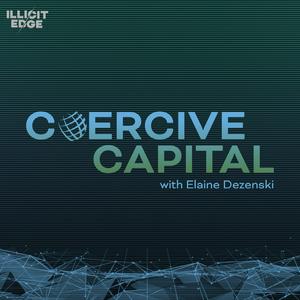Coercive Capital: The Corruption Continuum - Scott Greytak & Casey Michel
In the 1970s, corruption in the U.S was often not considered a problem. Or it was viewed as a problem that happened “over there”.... in other parts of the world. But in retrospect, the reality and our perception of corruption has changed. And even though anti-corruption legislation like the Foreign Corrupt Practices Act was implemented to help combat the issue, corruption continues and grows in ways that no one could have predicted. Kleptocrats around the world are uniting to attack us- in Russia, China, Venezuela, North Korea, and Iran- use their power to attack their neighbors, and destabilize the global economy… allowing dictators and criminals to leverage our own system against us – hiring lobbyists, lawyers, and corporate service agents to influence our elections, buy off our politicians, move dirty money, compromise our economy, and weaken our resilience.To help understand the urgency of these new risks and the tools needed to protect America, democracy, and, maybe, the world, Coercive Capital host Elaine Dezenski speaks with Scott Greytak, the Director of Advocacy of Transparency International US, and Casey Michel, Director of the Combating Kleptocracy Program at the Human Rights Foundation.

